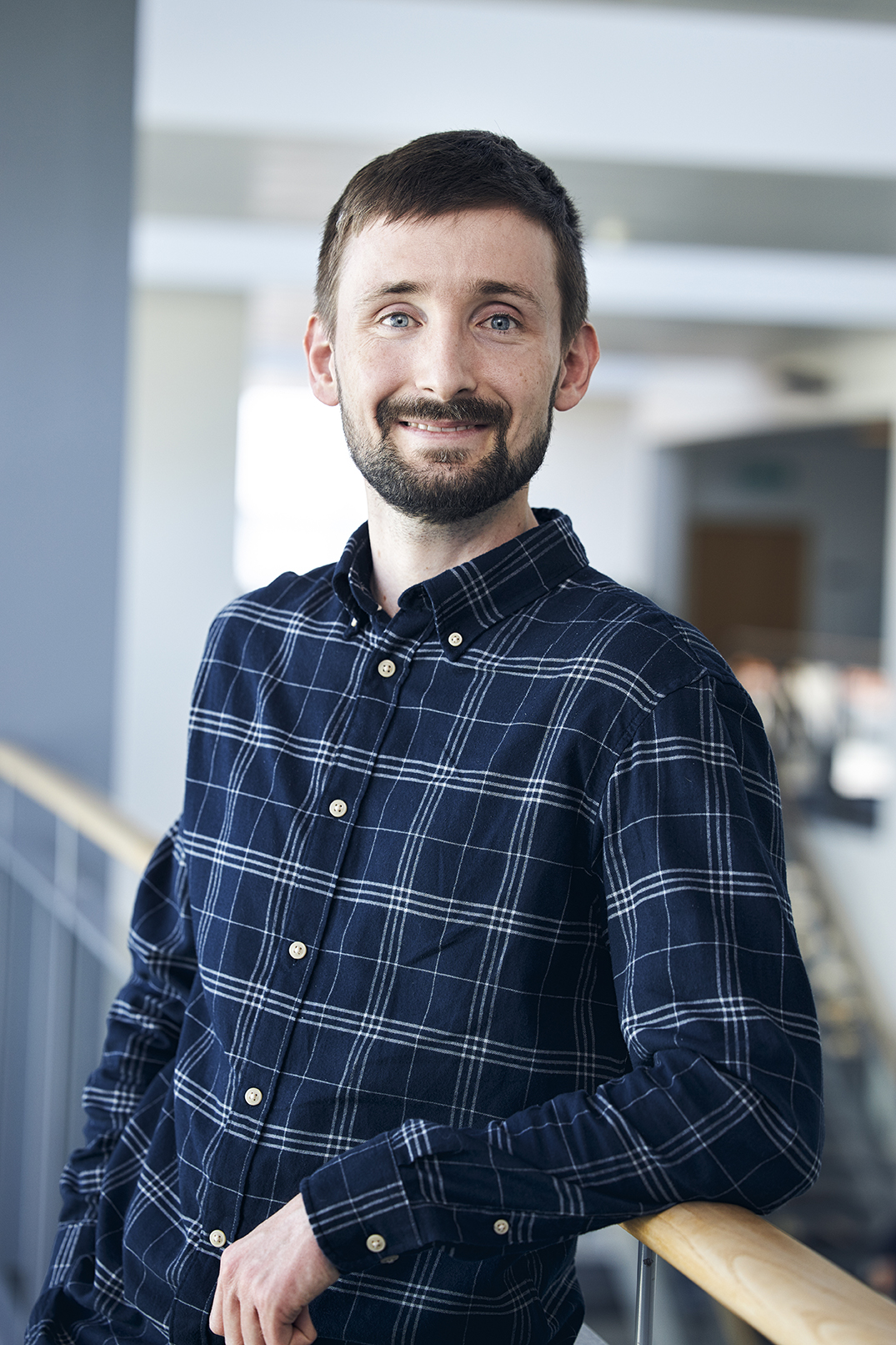PhD prize for more precise chemical calculations
Niels Kristian Kjærgård Madsen from the Department of Chemistry receives AUFF's PhD prize, DKK 50.000, for his development of quantum chemistry methods

Niels Kristian Kjærgård Madsen has developed improved equations for the calculation of the quantum dynamics of molecules which will make it possible to study chemical reactions by simulating them more precisely.
For Niels Christian, a recent PhD graduate in theoretical chemistry, the answers to all of his questions lie hidden in quantum physicist Erwin Schrödinger’s famous 1925 equation. And although quantum physics is highly specialised, the questions he studies are of very general interest:
“Technological development depends on our understanding how molecules behave and interact with each other. For example, in the pharmaceutical industry and in the development of green energy solutions. But we can’t see molecules under a microscope. Instead, we can use the Schrödinger equation to simulate what goes on in molecules,” explained Niels Kristian Madsen.
Although the equation has been in use for almost a century, it hasn’t yet been possible to exploit its full potential in relation to simulating the quantum dynamics of the atomic nucleus. Quantum mechanics has made greater advances in understanding electrons. But in order to understand what takes place in a chemical reaction, it’s also necessary to understand the dynamics of the atomic nucleus.
Niels Kristian Kjærgård Madsen’s PhD project just might have cracked the code.
The curse has been broken
He has shown how new methods of calculating quantum dynamics can “break the curse of dimensionality,” as he puts it in the title of his dissertation. The ‘curse’ is a wall quantum chemists hit when performing calculations of this kind that sets limits on what is practically possible.
“With Schrödinger’s equation, we can carry out quite accurate calculations on a molecule with four atoms. But the problem is that with each additional atom, the complexity of the calculations grows exponentially if you use the conventional method. In this specific case, you hit the wall as soon as you try doing the calculations on a five-atom molecule,” explained Niels Kristian Kjærgård Madsen.
While the alternative models that have been proposed until now can be used to approximate calculations on larger molecules, but without the desired accuracy.
“We succeeded in developing methods with a high degree of accuracy that can be used on larger, more relevant chemical research problems. The way they work is that instead of scaling exponentially, so that the calculations become 1,000 times more complex with the addition of just one atom, they scale polynominally, so that you get calculations that are maybe 10 times as complex with a molecule of twice the size.”
For non-experts too
Niels Kristian Kjærgård Madsen explained that while the research group’s groundbreaking results were the result of a collaboration, he doesn’t hesitate to claim responsibility for refining the theory and developing the right variations of the Schrödinger equation.
“Since then, the group has continued working together to develop a program that can solve the equations more quickly. This is also important work, because this research with have broader applicability if we can actually offer software that can be used by both experts and non-experts,” Niels Christian said.
He knows how quantum chemistry research is used by companies in the business; since completing his PhD, he has worked with software development in two of them.
PhD prizes conferred for the 20th time
AUFF’s talent prizes recognise newly minted PhD graduates whose work in their fields and their presentation of it has received extraordinary recognition. Each prize-winner receives a cash award of 50,000 kroner in recognition of their achievements.
Candidates for the award are nominated by the faculties from among their new PhD graduates. A selection committee with representatives from Aarhus University and AUFF select the prize-winners from among the nominated candidates. In this connection, the committee considers the candidates’ performance over the course of their PhD studies, and not the dissertation alone.
This year, the awards will go to an anthropologist, a medical doctor, a psychologist, a theoretical chemist and a software engineer. Their work offers society valuable new knowledge on the value of reading groups for young people with mental health challenges: the treatment of cardiac arrest at hospitals; emotional development in adults; the development of quantum chemistry methods; and efficient IoT data transfer. All five prize-winners are still involved in research: three in academic positions and two in research-based companies.
